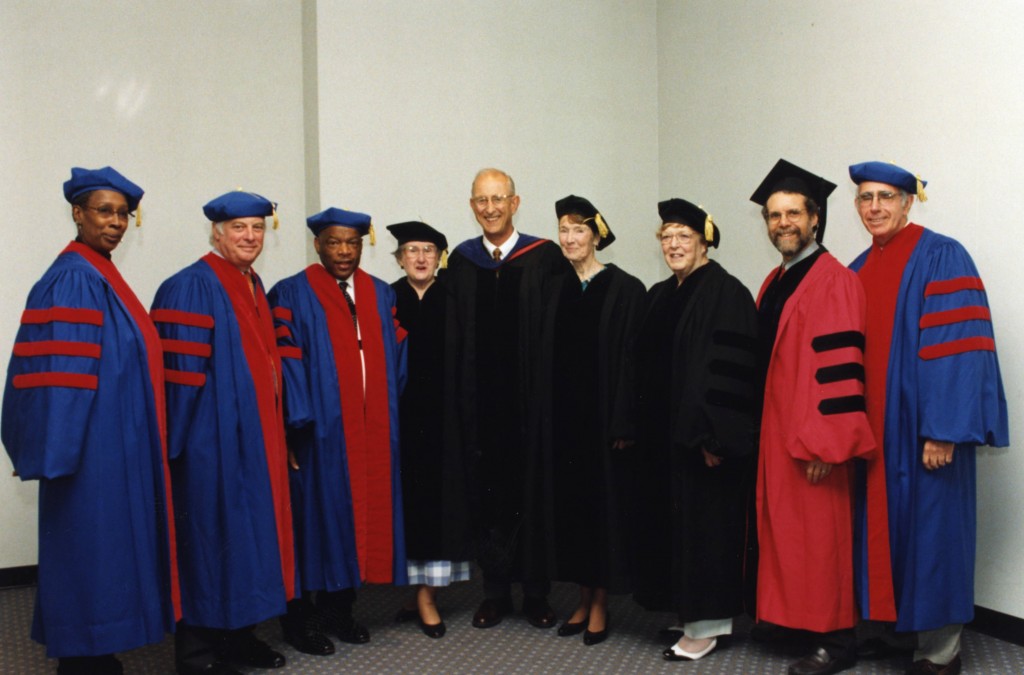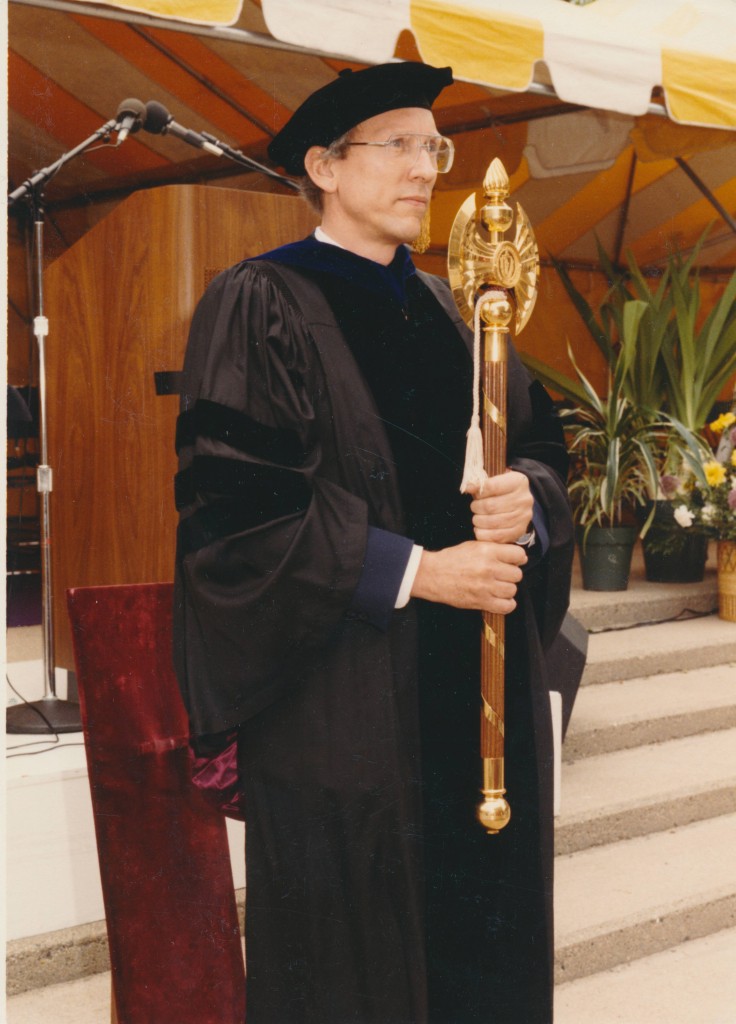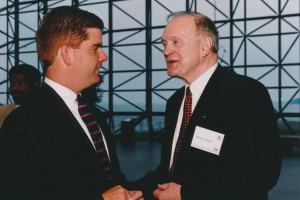The Massachusetts Legislature established the University of Massachusetts Boston in 1964 and the university opened its doors in 1965 at a renovated building in Park Square. That building, located at 100 Arlington Street and built in 1927 to serve as the corporate headquarters for the Boston Consolidated Gas Company, was the primary home to UMass Boston until the university moved to Columbia Point in 1974.
100 Arlington continued to be used by UMass Boston for a number of years and, from 1995 to 2010, was home to the Boston Renaissance Charter School, one of the first 14 charter schools approved to operate as public schools by the Massachusetts Secretary of Education in 1994. Earlier this year, though, the building at 100 Arlington began a new life after being repurposed into retail space and 128 luxury apartments. A one bedroom/one bathroom apartment in the newly renovated building leases for $3,800/month.
A discussion of Boston real estate costs aside, something I enjoyed seeing on the website for this new apartment and retail complex was a picture of the lobby elevators – elevators I’ve read about and seen photographs of in our University Archives collections.
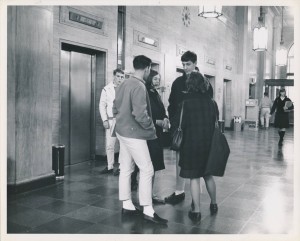
Students outside the elevators at the Arlington Street building in Park Square in 1966. UASC-UAPHO-0001-0097
There are a few photographs that we’ve digitized as part of our 50th anniversary photo indexing project that show UMass Boston students, faculty, and staff outside the lobby elevators at 100 Arlington in the late 1960s and early 1970s. Much has changed, but if you look closely at the newly renovated lobby and the photographs on our digital collections site, you’ll notice that a few telling characteristics remain.
A mail chute between two of the lobby’s five elevators. Pillars along the wall leading up to the elevators. A building directory frame that, in the redesigned lobby, now frames a large mirror.
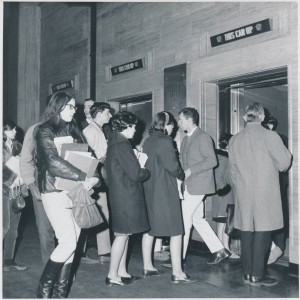
People outside the elevators in the lobby of the Arlington Street building in Park Square in 1966. UASC-UAPHO-0001-0096
But more than these photographs, there are snippets of information in our collections, contributed by UMass Boston community members, about the elevators in the lobby of 100 Arlington.
In one story, Linda Dittmar, an early faculty member in the English Department, describes the “lurching elevator that ferried us up and down [and how the elevators] still had a live operator announcing each floor …”
In another story, UMass Boston alumnus Joe Szocik writes about how the elevators helped create a more social environment: “… waiting for an elevator and riding the elevator provided many opportunities for talking to people from different classes.”
And in an interview conducted in the fall of 1998 as part of an oral history project, an early faculty member in the Music Department, Nicholas Tawa, talks about trying to hold concerts in the Arlington Street building’s lobby and “having to muffle the elevator bells because they kept on ringing.”
A lot in the newly purposed building at 100 Arlington has certainly changed, but at least those bells are still ringing.
University Archives & Special Collections in the Joseph P. Healey Library at UMass Boston collects materials related to the university’s history, as well as materials that reflect the institution’s urban mission and strong support of community service, notably in collections of records of urban planning, social welfare, social action, alternative movements, community organizations, and local history related to neighboring communities.
University Archives & Special Collections welcomes inquiries from individuals, organizations, and businesses interested in donating materials of an archival nature that that fit within our collecting policy. These include manuscripts, documents, organizational archives, collections of photographs, unique publications, and audio and video media. For more information about donating to University Archives & Special Collections, click here or email library.archives@umb.edu.

